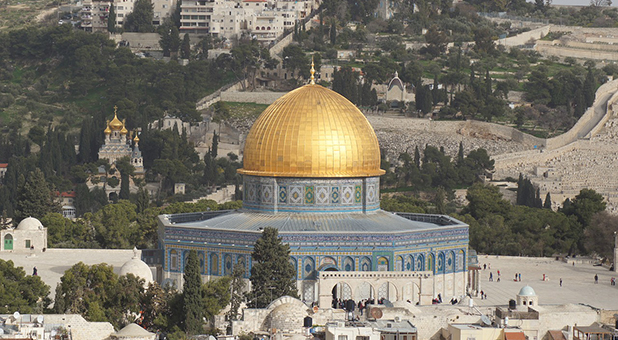Israel figures prominently in both the Old and New Testament prophecies. In Romans 11, Paul discusses the place of Israel in the end-times, and starts out by saying in verse 1: “I say then, Hath God cast away his people? God forbid.” In verse 5 he says: “Even so then at this present time also there is a remnant according to the election of grace.” This refers to Christ’s apostles, disciples, and initial converts who were all Jewish. Later, Gentiles were admitted into Christianity as full members. Christians are depicted as natural branches (Jews) and grafted branches (Gentiles) of the same tree.
Any branch can be broken off because of unbelief. In spite of the present unbelief of the Jewish nation, Paul says in verses 26 and 29: “And so all Israel shall be saved: as it is written, There shall come out of Sion the Deliverer, and shall turn away ungodliness from Jacob…For the gifts and calling of God are without repentance”. This sounds like the entire nation will be saved after the return of Christ. God is true to His covenants.
The modern nation of Israel was born in 1948 within the land called Palestine which was controlled by the British after World War One. The British had previously endorsed the establishment of a national home for the Jewish people in Palestine by their Balfour Declaration of 1917. The European powers mandated the creation of a Jewish homeland at the San Remo conference in 1920. Zionism is the movement which promoted the idea of a Jewish homeland in Palestine.
In 1947, the UN had proposed that there would be two states next to each other in Palestine after the British left: one Jewish, and the other one Arab. The Jews accepted the land that was offered to them, and, in 1948, established a Jewish government; but the Arabs didn’t want a Jewish nation in the Middle East. The surrounding Arab nations immediately attacked Israel to destroy it as soon as it came into being when the British ended their control of the land. Israel prevailed; and this war enabled Israel to add more land to what it had been offered at the beginning.
The Arabs also could have established a government in the part the land that they were offered by the UN if they had accepted it; but the surrounding Arab countries rejected it because they wanted all the land; instead, they chose wars against Israel to destroy it even though there were Palestinian Arabs who would have accepted the partitioned land. Jordan and Egypt occupied parts of the land after the 1948 war even though they were not included in the Partition Plan, but they were forced back to where they came from during the 1967 war to destroy Israel. Israel was able to send the Jordanians back over the Jordan River and the Egyptians were forced to retreat from Gaza. Syrians were expelled from the Golan Heights in the north. Jordan and Egypt did not create a Palestinian state for the Palestinian Arabs during the period of their occupation between 1949 and 1967.
Jerusalem had been proposed by the UN to be an international city separate from the Jewish and Arab lands, but, as a result of the 1948 war, the city was divided between the Jews and the Jordanians who had attacked Israel during that war: Jews in West Jerusalem, and Jordanians in East Jerusalem. Jerusalem was united under Israel after the 1967 war.
As a result of the 1967 war, the Jews now control all of the land. The Partition Plan no longer exists. The outcome of how the entire Jewish homeland was to be governed was decided by war. When you choose war to settle disputes, you may not always end up with what you had in mind. The Arab wars enabled the hopes of Zionism instead of destroying them because whenever Israel was attacked, it grew in the territory that it controls.
These wars dislocated many Arabs; and most of them were not allowed to return to Israel after they left during the wars. This is why there is a large Arab population in the land that is now controlled by Israel west of the Jordan River but is outside of Israel itself. Before the wars, there was a greater number of Arabs within Israel when it came into being.
The international status of Israeli-controlled land outside of Israel remains ambiguous because it had been rejected by the Arabs for a state next to Israel. The goal of many Arabs was, and still is, to rid the entire land of Jews; and this makes any further resolution of hostilities difficult. Because of this objective, most Israelis want to keep control of all of the land for security purposes: even those who are not Zionists. There are those who want to keep all of the land for religious reasons.
In spite of Israel’s growing pains, I believe that the Jewish state will proceed as is prophesied in the Bible. God is in control of history, and He will fulfill His covenants (see Zechariah 12).
For more information and a FREE download of Peter Aiello’s entire book, visit http://www.hiddentreasure.website/.
Email comments to [email protected].
See an error in this article?
To contact us or to submit an article




















